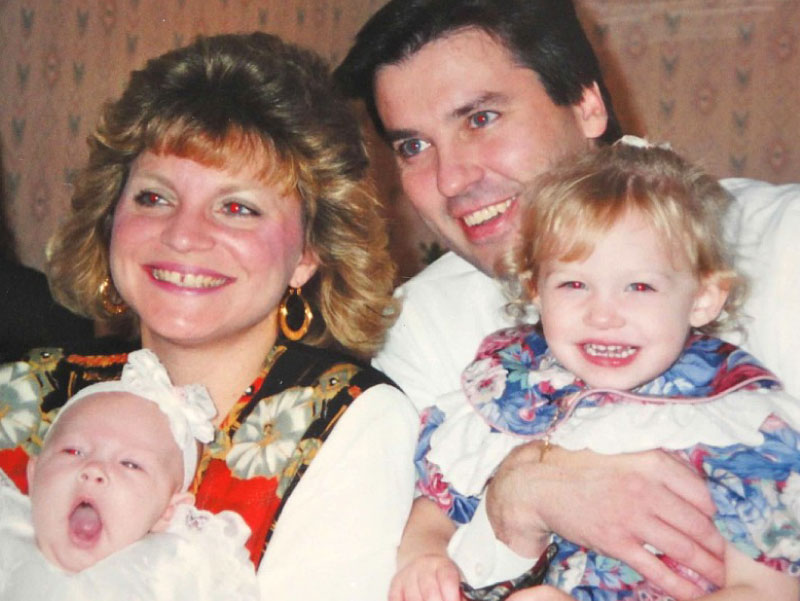Hospital executive saved at the very facility where he toiled for decades
By American Heart Association News

Gerard Blaney figured his excruciating headache was simply due to a combination of too much stress and too little food. It was budget season at Einstein Healthcare Network in Philadelphia, and as the network's chief financial officer, his entire lunch that day in April 2016 consisted of a single pretzel.
He arrived home that evening hungry, hurting and harried.
"He looked awful," said his wife, Mariann.
Hoping food would help him feel better, the couple and their then-23-year-old daughter, Chelsea, headed to a restaurant. But as soon as they were seated, Gerard put his head down on the table. His bad headache was worse, he was sweating and the burning that had been in his chest was now in his throat. Before they could even place their orders, he told his family that he needed to go home.
Although Gerard had driven to the restaurant, he handed the keys to Mariann and climbed into the back seat to lie down. Mariann figured he was suffering from an allergy-related headache and prepared to drive home.
"Mom, whatever you do, don't go home," Chelsea whispered.
Chelsea suggested going to a hospital. Mariann agreed. Gerard did, too, but on one condition: the only place he would go was Einstein, which was 40 minutes away.
Mariann agreed, although she also formulated a Plan B.
"I was prepared to call 911 if I had to," she said.
Fortunately, the backup plan was not needed. When they arrived at Einstein, a team of health professionals were waiting, and they whisked away her husband.
Dr. Lynn Morris, a cardiologist, evaluated Gerard and broke the news to him. He was having a heart attack.
"I'm not having a heart attack," Gerard said.
"Yes, you are," Morris said. "I know a little more than you."
Even though an older brother had recently had a heart attack, Gerard didn't consider himself at risk. He never smoked and rarely drank. He exercised regularly and had been taking cholesterol-lowering medicine for years. Plus, he wasn't experiencing typical heart attack symptoms such as arm or chest pain.
"It was probably hard-headedness on my side," he said. "When they're going to rush you right into the emergency room and you're only 59 years old and think you're in pretty good health, it's hard to accept that you're having a heart attack."
Morris found the "culprit artery" and was able to open the blockage. In doing so, he noticed more disease in another artery, prompting coronary bypass surgery days later.
Gerard has worked at Einstein for 35 years. It's where he met Mariann. He said that familiarity and the skill of the Einstein heart team were why he insisted his family take him there despite passing three other hospitals along the way.
About three weeks after the heart attack, Gerard was back at work, though in a limited capacity. Soon after, he was able to attend the graduation of his younger daughter, Cailin, from Penn State University.
Today, Gerard exercises more and tries to eat better, opting for turkey burgers instead of hamburgers. And while he is still swamped with work, he's picked up one additional responsibility: chair of the Philadelphia Heart Walk on Oct. 27.
Gerard said the information he's received preparing for the American Heart Association's flagship event has helped not only him, but his extended family as well. Now he hopes to help others remain heart-healthy, too.
"The big moral of the story is, if you have symptoms and aren't feeling right, you have to get to the doctor," he said.
Stories From the Heart chronicles the inspiring journeys of heart disease and stroke survivors, caregivers and advocates.
If you have questions or comments about this story, please email [email protected].





